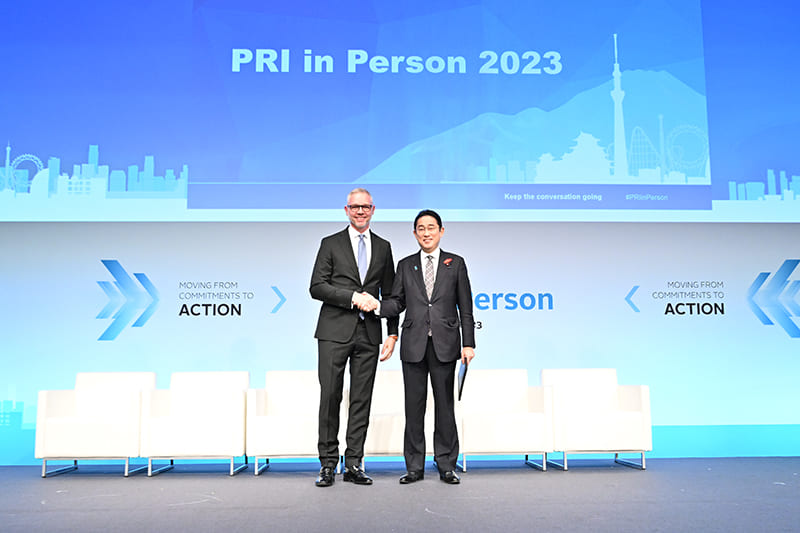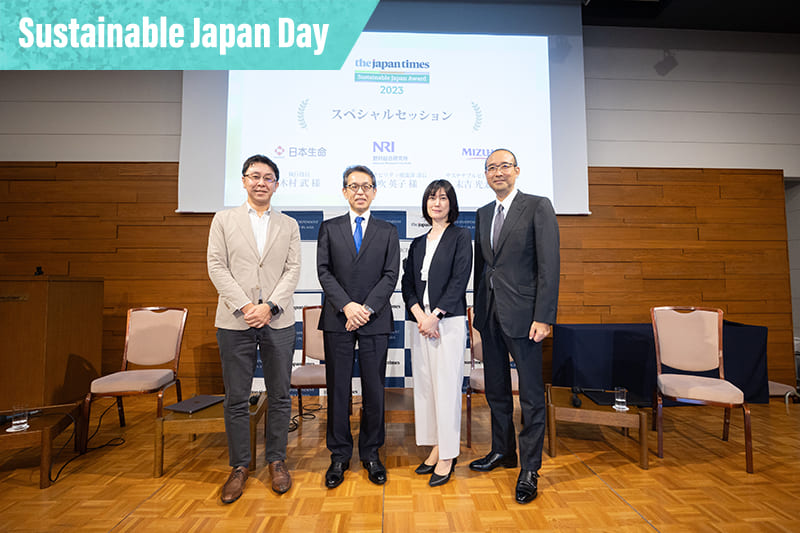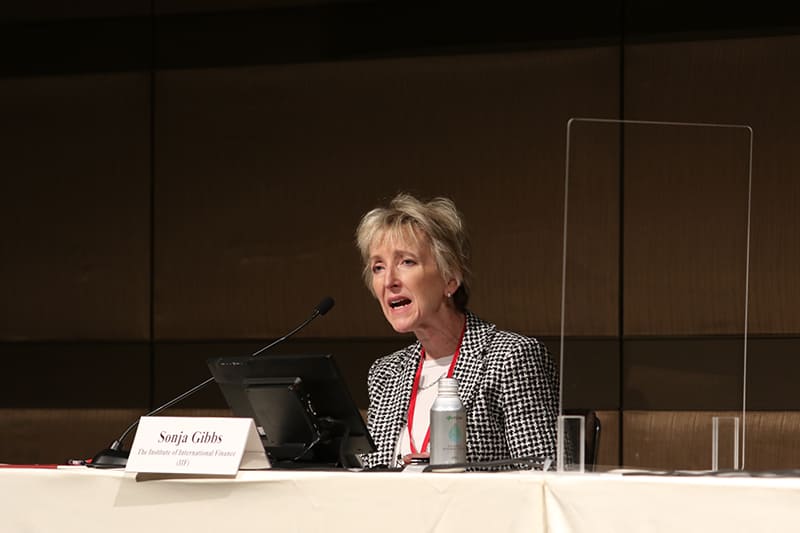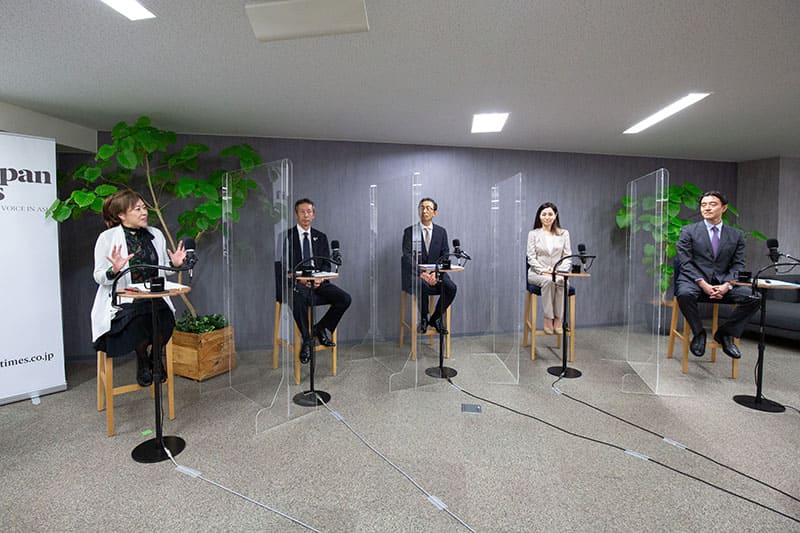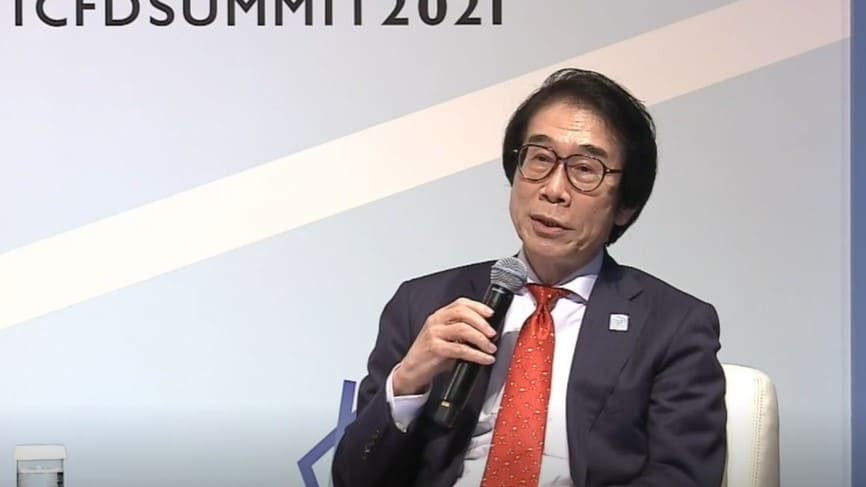June 21, 2024
RI Japan forum looks at future of transition finance
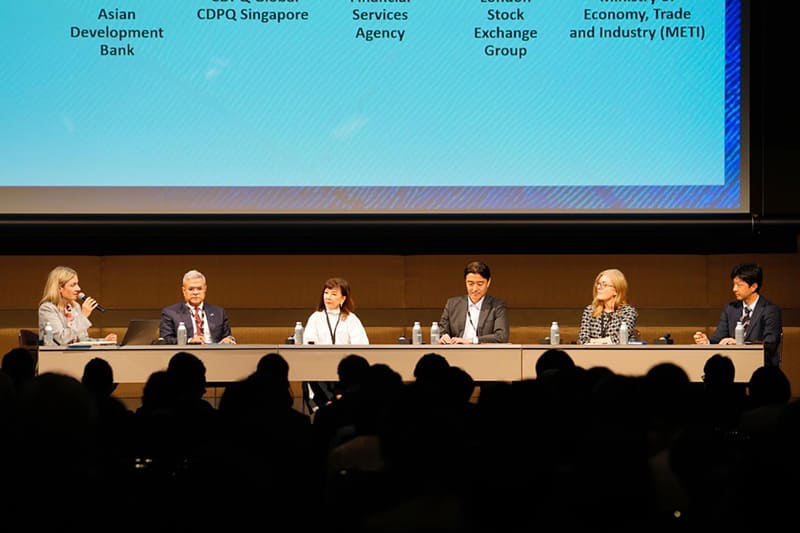
Institutional investors from around the world gathered on May 22 and 23 in Tokyo to discuss what responsible investors can do to encourage a greener society.
The annual conference, RI Japan, attracted about 1,000 attendees, the most ever, from a wide range of countries including Australia, Hong Kong, South Korea, Japan, the United States and the United Kingdom.
In the first plenary session, on the subject of “the future role of transition finance in sustainable investing,” speakers exchanged opinions about the role of private-sector financial institutions in accelerating the transition to a zero-emission sustainable society.
“Investors are now increasingly looking to understand and manage the external impact of their investment decisions because ultimate financial returns and economic growth rely on the stability, resilience and prosperity of the natural, social and economic systems in which they operate. This is why looking at sustainability outcomes increasingly matters for investors,” said Margarita Pirovska, director of policy for Principles for Responsible Investment (PRI) and moderator of the panel discussion. PRI is a United Nations-backed network of institutional investors.
Behind the global trend is the adoption of the Paris Agreement in 2015, which requires signatories to set up long-term goals to reduce greenhouse gas emissions, and the sustainable development goals agreed upon at the United Nations in the same year, she said.
The first panel discussion focused on the challenge of transforming the world’s fossil-fuel-powered economy to one with net-zero emissions. Bhargav Dasgupta, vice president for the Asian Development Bank (ADB), kicked off the discussion by pointing out the criticality of current climate change and the need for financing to tackle it.
According to an ADB estimate, Asia needs as much as $1 trillion every year to transform toward net zero, he said, adding that he himself, who lives in Manila, feels the severity of global warming, such as when he witnessed melting roads in the region due to a record heat wave in the region.
“During this decade between 2019 and 2030, we will invest $100 billion of our own balance for climate action,” Dasgupta said. The other objective of the ADB is to work with other partners to add to the amount of financing. So it is critical to collaborate with other parts of the ecosystem — policymakers in the public sector and financial institutions in the private sector — to induce more capital for the net-zero transition and overall climate financing, he said.
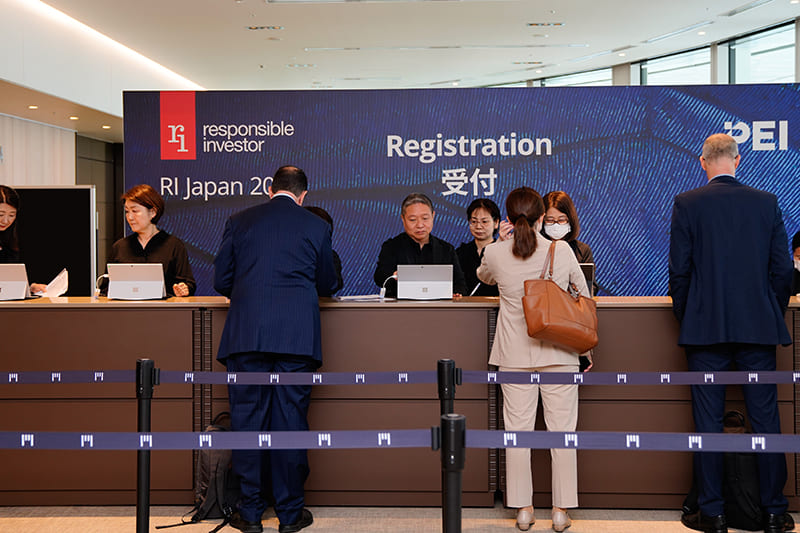
Helena Fung, head of sustainable finance and investment in the Asia-Pacific region for the London Stock Exchange Group, echoed that and pointed to the serious financing needed for Asia to follow a net-zero pathway. “Asia is one of the regions where the transition is going to be most critical,” she said.
Fung also pointed out the importance of looking at economy-wide transition projects, not only individual green activities. “We need to think of it from both the use of proceeds at an activity level, but also at the entities themselves, and understand what they’re doing to transition,” she said.
While a number of taxonomies and definitions for sustainability investments that have emerged in the past decade are important, including those in the EU and Singapore, investors also need to look at what constitutes transition activities, which should show them what has the best performance and clearest pathway to net zero.
In terms of transition planning, she said, one significant work is the guidance released by the U.K.’s Transition Plan Taskforce earlier this year.
Investors should not focus only on heavily emitting and hard-to-abate sectors like iron and steel or chemicals, as other sectors also have large reduction potentials, Fung said. “There are some sectors where we still need to see scalable technological solutions development that obviously requires financing and support.”
From the policy side, two Japanese officials explained the role of the government.
Fumihiro Kajikawa, director of the Ministry of Economy, Trade and Industry’s office for green transformation financing, said there are three important points to consider. One is that the business sector needs to conduct research and development, as well as use capital spending, for lower emissions. The second is that financial institutions should provide enough support to projects that require huge amounts of money. The last is to create an environment in which net-zero and low-carbon financial products are welcomed by the financial market, in order to create a virtuous cycle from all of these. “What we have to do is to move forward these three things, together with other [ministries and] sectors,” he said.
For example, about half of the proceeds raised by Japan’s first climate transition bonds, worth about ¥1.6 trillion ($10 billion), is to be spent for industrial research and development.
Kajikawa said investments for green transformation are critical for Japan, whose energy self-sufficiency rate is merely 13% and which therefore relies heavily on imported fossil fuels, including coal, oil and natural gas. Rising prices for imported energy affect the country’s trade, he said, by offsetting exports of automobiles, semiconductors and other machinery.
Japan is also looking into intellectual properties related to lowering carbon emissions, Kajikawa said.
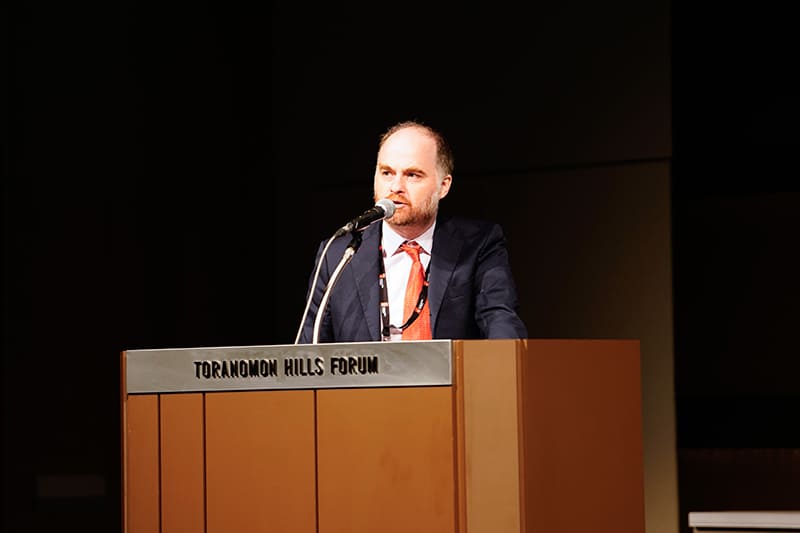
Hideki Takada, the director for strategy development at the Financial Services Agency, explained the background of the country’s launch of the Asia GX Consortium — the “GX” is short for “green transition” — in March. Aligning with public and private financial institutions — the ADB, the Association of Southeast Asian Nations and Glasgow Financial Alliance for Net Zero — the agency sought potential projects based on case studies of transition finance in Asia.
“Unfortunately, most of the existing industries and technologies in the world are not yet green. We need to provide finance to turn them greener and decarbonize the economy as a whole. That is the role of transition finance,” Takada said.
He echoed Fung’s comment that transition finance aims to support high-level approaches, not only individual projects, and that it is a concept for dynamic change in society. Based on the philosophy of transition finance, the consortium discusses not only concepts of transition finance but projects that can move the transition forward, he said.
Leong Wai Leng, managing director and Asia-Pacific head for pension funds for CDPQ Global, based in Singapore, stressed the importance of “blended finance” because the huge amount of investments needed to turn the world greener requires cooperation among governments and the private sector, including pension funds, wealth funds and philanthropic groups.
The first day of the event also spotlighted human rights in sustainable business operations, a serious but difficult issue for companies to tackle.
Ryusuke Tanaka, the program officer at the International Labour Organization’s office for Japan, said in a panel discussion on business and human rights that the difficulty of the issue comes from a lack of clear solutions as to how much companies have available to invest in solving the issue and how much return the investment would bring about. Companies are also uncertain if they ever have to prioritize the issue.
He insisted that forced labor and child labor persist or are even increasing in supply chains, despite the significance of human rights agendas being well acknowledged across the globe.
“I want investors to acknowledge the agenda, as they are the ones who have an effective impact on companies,” Tanaka said, stressing that respect for human rights helps individuals’ dignity and thus empowers them.


